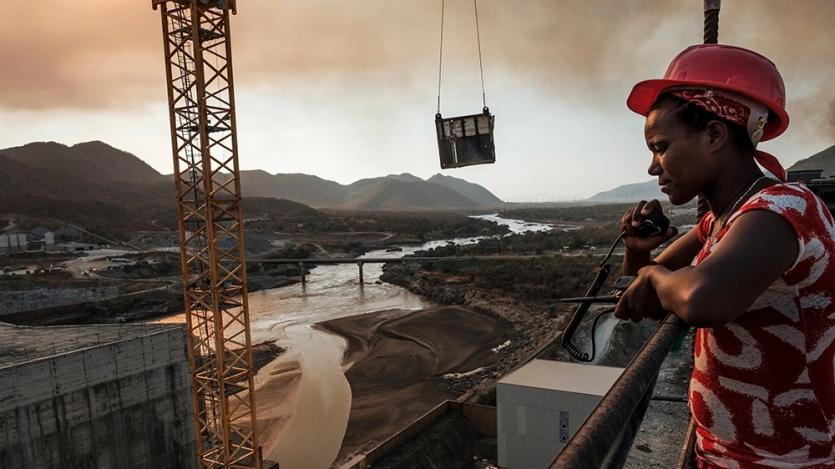Grand Ethiopian Renaissance Dam (GERD) has been a source of tension in the Nile River basin ever since Ethiopia broke ground on it in 2011, with downstream countries Egypt and Sudan worried it will restrict vital water supplies. Photo:AFP
By Patryk Krych | The World Daily | FEBRUARY 2nd 2021
Ethiopia’s capital of Addis Ababa just recently had to be warned against filling in a controversially built dam reservoir, by the Sudanese Irrigation Minister Yasser Abbas. The minister insists that the filling of the dam will lead to the endangerment of several Sudanese communities that live along the shores of the Blue Nile, and that a contract should be signed before proceedings are made.
Irrigation Minister Yasser Abbas insists that before the filling of the dam takes place, that a contract be signed with the stakeholders at the very least. It was earlier in the month of January when Abbas had first expressed “deep concern” over Ethiopia’s announcement that a second filling of the dam would be taking place soon.
Abbas’ concerns were primarily expressed in a message sent out to the international cooperation of South Africa. It was in this message where he spoke of his uncertainties in allowing the second filling of the dam to go forward until a binding agreement is signed for between the three involved countries – those being Egypt, Sudan and Ethiopia.
The controversy of the construction of this dam has been discussed between the three concerned countries several times over as it is – due to Sudan and Egypt’s concerns that the reservoir would lead to water shortages and potential resulting health disasters in their territories.
The three countries are no strangers to health crises. In fact, Ethiopia is having a humanitarian crisis of its own at the moment, according to the United Nations Refugee Chief, who further warned that the crisis will only continue to spiral and become worse if nothing is done about it.
“The situation as I said is very grave, it is very urgent. Without further action it will get worse,” warned the UN high commissioner for refugees Flippo Grandi, pointing to the Tigray region of Ethiopia as a particular area of concern. “We still have time and I guess in spite of all the suffering that has already happened to intervene now.”
He added that there’s a large number of Ethiopian refugees in Sudan – and that the number is still increasing and now “exceeds 60,000 refugees.”






